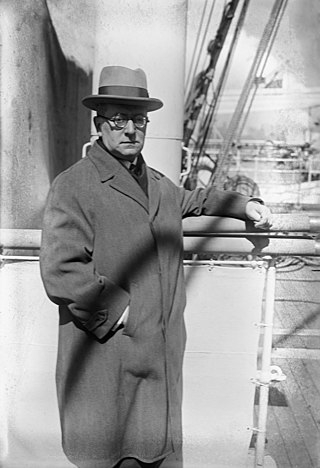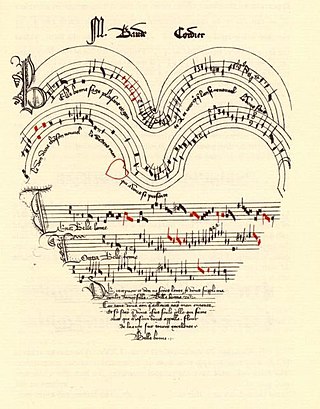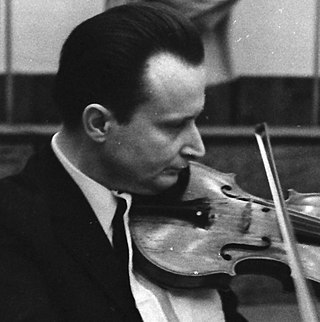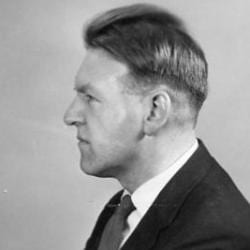
Carl Flesch was a Hungarian violinist and teacher. Flesch’s compendium Scale System is a staple of violin pedagogy.

Norbert Brainin, OBE was the first violinist of the Amadeus Quartet, one of the world's most highly regarded string quartets.
Benjamin Frankel was a British composer. His best known pieces include a cycle of five string quartets, eight symphonies, and concertos for violin and viola. He was also notable for writing over 100 film scores and working as a big band arranger in the 1930s. During the last 15 years of his life, Frankel also developed his own style of 12-note composition which retained contact with tonality.

Per Nørgård is a Danish composer and music theorist. Though his style has varied considerably throughout his career, his music has often included repeatedly evolving melodies—such as the infinity series—in the vein of Jean Sibelius, and a perspicuous focus on lyricism. Reflecting on this, the composer Julian Anderson described his style as "one of the most personal in contemporary music". Nørgård has received several awards, including the 2016 Ernst von Siemens Music Prize.
Rudolf Baumgartner was a Swiss conductor, violinist, and music educator. In 1956 he founded the Lucerne Festival Strings chamber orchestra together with Wolfgang Schneiderhan.
Antonín (Anthony) Kammel was a Bohemian composer and violinist of the Classical period. He is known for his instrumental works composed primarily for strings, though he did compose a few sinfonias and divertimentos that included wind instruments. His music incorporates many features of other Classical period works as well as elements reminiscent of Czech folk music.

Baude Cordier was a French composer in the ars subtilior style of late medieval music. Virtually nothing is known of Cordier's life, aside from an inscription on one of his works which indicates he was born in Rheims and had a Master of Arts. Some scholars identify him with Baude Fresnel, a harpist and organist in the court of Philip the Bold, though other scholars have rejected this.

Anthony Edward Payne was an English composer, music critic and musicologist. He is best known for his acclaimed completion of Edward Elgar's third symphony, which subsequently gained wide acceptance into Elgar's oeuvre. Apart from opera, his own works include representatives of most traditional genres, and although he made substantial contributions to orchestral and choral repertoire, he is particularly noted for his chamber music. Many of these chamber works were written for his wife, the soprano Jane Manning, and the new music ensemble Jane's Minstrels, which he founded with Manning in 1988. Initially an unrelenting proponent of modernist music, by the 1980s his compositions had embraced aspects of the late romanticism of England, described by his colleague Susan Bradshaw as "modernized nostalgia". His mature style is thus characterised by a highly individualised combination of modernism and English romanticism, as well as numerology, wide-spaced harmonies, specific intervallic characterisations, and the frequent alternation between strict and fluid rhythmic frameworks.
Károly Schranz is a Hungarian violinist and founding second violinist of the Takács Quartet. During his forty-three year career with the quartet he received awards from the Hungarian Government of the Knight's Cross and the Commander's Cross of the Order of Merit of the Republic of Hungary. As a member of the Takács he was awarded one Grammy and four nominations, several Gramophone Awards, as well as other awards of excellence.
Dong-Suk Kang is a South Korean violinist.
Vanya Milanova is a Bulgarian-born solo violinist, recording artist and professor of music.
Trevor James Williams was a British violinist and professor at the Royal Academy of Music and at North Carolina University.
Nancy Bassen Reich was an American musicologist, most renowned for her 1985 biography of Clara Schumann.
Edric Cundell CBE, was a British music teacher, composer and conductor.
Stoika Milanova is a Bulgarian classical violinist and academic teacher. She was taught by her father using a method that he developed, and later by the violinist David Oistrakh. After placing second in the Queen Elisabeth Competition (1967) and winning the Carl Flesch Competition (1970), Milanova began an international career as a soloist and recitalist, which was at its height during the 1970s and early 1980s. Her recording of the two Prokofiev violin concertos received a Grand Prix du Disque from the French Académie Charles Cros. She taught at the State Conservatory of Venezuela (2005–10) and, as of 2016, holds the chair of violin at the State Academy of Music of Sofia.

Dénes Kovács was a Hungarian classical violinist and academic teacher, described as "pre-eminent among Hungarian violinists". He won the Carl Flesch International Violin Competition in 1955. In his career as a soloist and recording artist, he premiered and recorded the works of 20th-century Hungarian composers, and was also noted for his recordings of Bartók and Beethoven. From 1967 to 1980, he headed the Franz Liszt Academy of Music in Budapest, Hungary's principal music college. He received many national awards including the Kossuth Prize (1963).
Eugen Sârbu is a Romanian-born classical violinist. He has had an international career as a soloist, recitalist and conductor. In 1978, he won both the Paganini Competition and the Carl Flesch International Violin Competition. He has premiered works from living composers including Einojuhani Rautavaara, and has recorded Sibelius and Mozart.

Gilbert Reaney was an English musicologist who specialized in medieval and Renaissance music, theory and literature. Described as "one of the most prolific and influential musicologists of the past century", Reaney made significant contributions to his fields of expertise, particularly on the life and works of Guillaume de Machaut, as well as medieval music theory.
Gábor Ormai was a Hungarian violist and educator who was most famous as a co-founder of the Takács Quartet in 1975; a group with which he toured widely in performance, made several recording, and won multiple international awards up until just a few months before his death from cancer in 1995.







